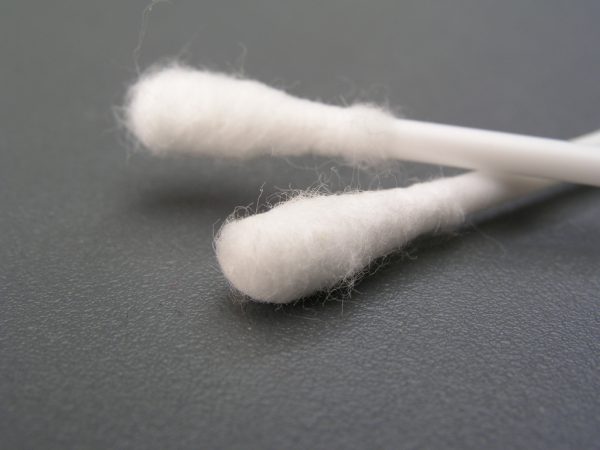More children are admitted to the emergency room each day for cotton tip swab injuries than for firearm injuries
05/18/2017 / By Tracey Watson

You can find them in every supermarket in the country: The cotton tip applicators are displayed right there beside the baby shampoo or perhaps in the toiletries aisle. And we expect to find them there because we’ve all been taught that we need them to clean our ears. What many of us don’t realize is that such cleaning could result in mild injuries or even irreversible hearing loss.
A collaborative study by the Department of Otolaryngology and the Center for Injury Research and Policy at Nationwide Children’s Hospital, published online in The Journal of Pediatrics, found that in the 20-year period from 1990 to 2010, about 263,000 young children were admitted for emergency treatment in U.S. hospitals after sustaining injuries while using cotton tip applicators. That’s about 34 injuries each day. Even gunshot wounds only send 20 children to the emergency room on any given day.
The researchers obtained the information for the study by consulting the National Electronic Injury Surveillance System (NEISS), which was set up to collect information from emergency rooms countrywide on injuries resulting from commercial products or during sports and recreation activities.
Kris Jatana, the senior author of the study, and an associate professor at The Ohio State University Wexner Medical Center, noted that many parents mistakenly believe that their children’s ear canals need to be cleaned at home, and that cotton tip applicators are the perfect tools for the job.
“The ears [sic] canals are usually self-cleaning,” she said. “Using cotton tip applicators to clean the ear canal not only pushes wax closer to the ear drum, but there is a significant risk of causing minor to severe injury to the ear.”
The power of the elements: Discover Colloidal Silver Mouthwash with quality, natural ingredients like Sangre de Drago sap, black walnut hulls, menthol crystals and more. Zero artificial sweeteners, colors or alcohol. Learn more at the Health Ranger Store and help support this news site.
While the vast majority of children admitted to hospital emergency rooms for such injuries were just treated and sent home, some suffered more serious injuries, including ear drum, hearing bone or inner ear damage; dizziness; balance problems; and tragically, even permanent hearing loss.
It would seem that the biggest problem was children who had been tasked with cleaning their own ears. In fact, 77 percent of the children injured had been cleaning their own ears when they got hurt. Two-thirds of the children injured were below the age of 8, with kids younger than 3 accounting for almost half the injuries.
Some of the injured children had not been using the cotton tip applicators for cleaning, but in 10 percent of cases had simply been playing with them, and in a further 9 percent of instances got hurt when falling while they had an applicator in their ear.
Dr. Jatana noted that while it is encouraging to note that the overall number of injured did decrease over the years, “it is still unacceptably high.”
So, why does the body produce all that nasty earwax? And doesn’t it need to be cleaned?
The American Academy of Otolaryngology explains that earwax is actually healthy, and in fact serves as a self-cleaning agent, protecting the ears from bacteria and providing protective lubrication. When we chew our food, old earwax is transported from the ear canal to the opening of the ear, where it dries and simply flakes out. Earwax is only supposed to form in the outer third of the ear, and when a patient ends up with a wax blockage of the eardrum, it is usually because they have been poking and prodding the ear with bobby pins, cotton tip applicators or other items, which have pushed earwax in deeper.
Ears should only be cleaned if:
- You have an earache, or feel like your ear is plugged;
- You feel like you can’t hear properly;
- You’re experiencing tinnitus (ringing in the ear);
- You notice itching, or a discharge or odor; or
- You have persistent coughing.
The correct way to clean the ears in one of these instances is to use a few drops of mineral oil, baby oil or commercial cleaner in the ears. If that doesn’t work, a physician may need to irrigate the ear.
Sources:
Tagged Under: cotton tip applicators, ear cleaning, ears, earwax




















